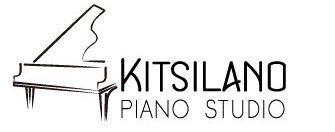Learning music and the basics of the piano can be done in many ways: conservatory, music school and private lessons, etc.
However, these various methods have the drawback of being either difficult to integrate or costly. Moreover, as a beginner adult, it is very difficult to find musical training.
Why not learn the piano on your own?
In this article, you will find some tips for successfully learning the piano for beginners without taking lessons.
The pitfalls to avoid when learning the piano on your own
First of all, it is better to realize the difficulty of learning to play the piano and to read music on your own. But if you are there, your motivation is great!
And motivation, you’re going to need it, along with rigor, discipline, and consistency.
Don’t buy just any method!
The first thing to know is that the material will not make you a good pianist. Thus, the only essential thing to learn the piano is to have a piano or at least a keyboard. Before buying the latest trendy piano method, get behind your instrument and let your fingers run across the keys. You probably already know a melody without having ever taken piano lessons or learned music theory. Listen to the different tones, learn to differentiate the bass and treble sounds, try to find melodies that are simple to the ear
Beware of free sheet music on the internet!
Usually, when you want to learn the piano on your own, the motive is not to become a world-famous pianist, but simply to play a few tunes you appreciate.
It is then easy to rush on the internet to find the score. However, free scores often contain errors in rhythm, measure, notation, or fingerings. You may therefore learn false things based on a transcription of midi files!
On the contrary, a paid sheet will be edited by a professional and will therefore ensure you a quality piano sheet music.
Do not hesitate to go to a music store for professional advice.
Respect the fingerings!
The most serious pitfall for a beginner is not respecting the fingerings of a score. These are the numbers printed above or below the notes. They all correspond to a finger:
- Thumb,
- Index,
- Middle finger,
- Ring finger,
- Little finger.
Unfortunately, not respecting fingering is a common mistake. We are not necessarily careful and yet it is very important!
If you don’t pay attention to it from the start, you will develop bad habits and you will not be able to achieve the fluidity and speed required on certain tracks. You will then be blocked in your learning of the piano.
Neglecting the work of the rhythm
The metronome is not there to look pretty! You have to learn to use it the moment you learn the initial piano chords. Rhythm is very important! This is what will make the difference between successful performance and any amateur game.
The rhythm compels you to clap and dance while listening to pop, rock or jazz. It is because of the rhythm that we minimize false notes. Convenient, isn’t it? If you want to work on improvisation, it’s mandatory, especially in a group!
So get in the habit of working any score, after deciphering, with the metronome, even at a very slow pace.
Skipping steps
As a beginner, we often want to go too fast. Don’t try to play too complicated songs quickly. You may become discouraged and you will not progress faster. Master one concept well before proceeding to another and work one hand at a time.
